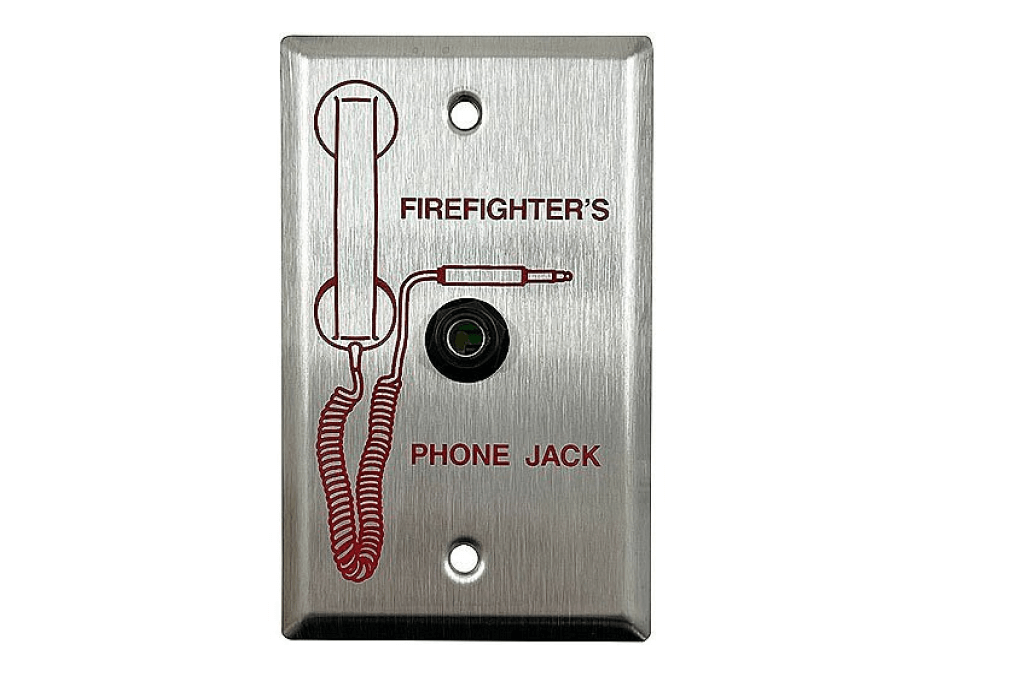
TELEPHONE JACK
Brands
- HONEYWELL
- MORLEY
- SYSTEM SENSOR
- NOTIFIER
- GST
- & Many More
In fire alarm systems, a telephone jack serves as a communication link between the fire alarm control panel and a remote monitoring station or central monitoring facility. This enables the control panel to transmit real-time information about the fire situation, ensuring prompt response and coordination with emergency services.
Importance of Telephone Jacks
Telephone jacks are essential for establishing reliable communication channels in both residential and commercial settings. They enable users to connect their telephones, fax machines, modems, and other devices to the telephone network, facilitating voice calls, fax transmissions, and internet connectivity.
Types of Telephone Jacks
There are several types of jacks commonly used:
- RJ11 Jacks: Standard jacks used for connecting single-line telephones.
- RJ45 Jacks: Larger jacks primarily used for connecting Ethernet cables in computer networks but can also support VoIP telephones.
- Modular Jacks: Versatile jacks that can accommodate various connector types, including RJ11 and RJ45.
Key Features to Look:
Consider the following key features:
- Compatibility: Ensure compatibility with your telephone devices and network infrastructure.
- Durability: Choose jacks made from high-quality materials to withstand frequent use and environmental conditions.
- Ease of Installation: Opt for jacks with user-friendly designs for easy installation and maintenance.
- Signal Quality: Look for jacks that maintain signal integrity to ensure clear and reliable communication.
Benefits of Using Quality Jacks
Using quality telephone jacks offers several benefits:
- Reliability: High-quality jacks ensure stable connections and minimize the risk of signal loss or interference.
- Versatility: Compatible with a wide range of telephone devices and network configurations.
- Ease of Use: User-friendly designs make installation and maintenance hassle-free.
- Longevity: Durable construction ensures long-term performance and reliability.
Common Applications of Telephone Jacks
Telephone jacks are used in various applications, including:
- Residential Telephony: Connecting telephones, modems, and fax machines in homes.
- Commercial Telephony: Establishing communication networks in offices, businesses, and call centers.
- Internet Connectivity: Providing access to broadband internet services via DSL or cable modems.
- Voice over IP (VoIP) Telephony: Enabling voice calls over internet protocol networks.
How to Install a Telephone Jack
Installing a telephone jack requires basic tools and knowledge of wiring principles. Here’s a general overview of the installation process:
- Prepare the Wall: Choose a suitable location for the jack and mark the position on the wall.
- Run the Cable: Route a telephone cable from the nearest telephone line to the jack location.
- Mount the Jack: Secure the jack mounting plate to the wall and connect the telephone wires to the appropriate terminals.
- Test the Connection: Plug in a telephone device to the jack and test for dial tone and connectivity.
Troubleshooting Common Issues with Telephone Jacks
Common issues include static noise, no dial tone, and poor signal quality. Troubleshooting steps may include checking connections, replacing cables, or testing with alternative devices.
Comparing Traditional vs. VoIP Telephone Jacks
Traditional jacks operate on analog networks, while VoIP jacks utilize digital networks for voice communication. Each type has its advantages and limitations, depending on factors such as cost, reliability, and features.
Pricing and Cost Considerations
The cost of telephone jacks varies depending on factors such as brand, type, and features. Budget-friendly options are available for residential use, while premium jacks with advanced features may be preferred for commercial or industrial applications.
Quality and Durability Factors
Choose telephone jacks made from durable materials such as high-impact plastic or metal to ensure longevity and reliability, especially in high-traffic areas or harsh environments.
Telephone jacks are fundamental components of modern communication networks, facilitating voice calls, internet access, and data transmission. By understanding the types, features, and installation processes of telephone jacks, you can ensure seamless connectivity and reliable communication in your home or busin


